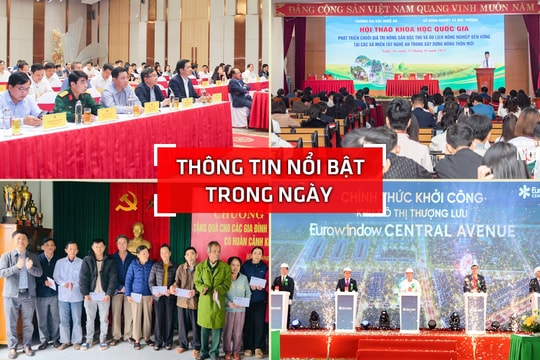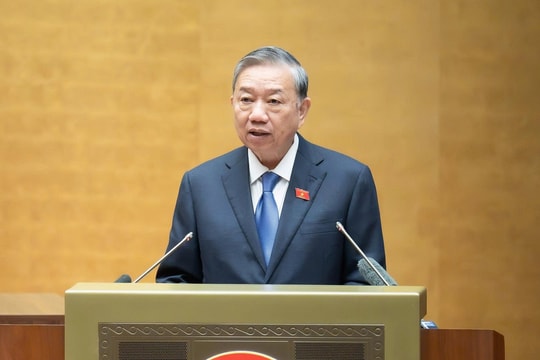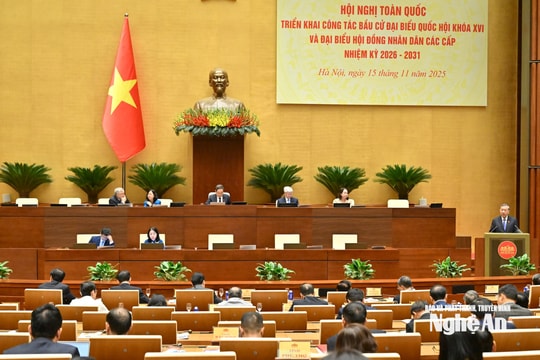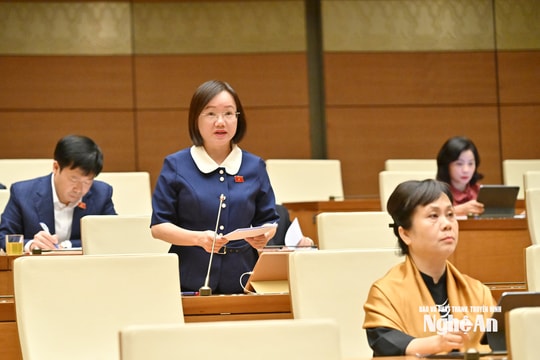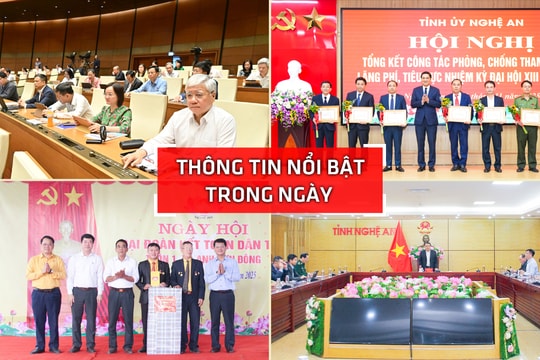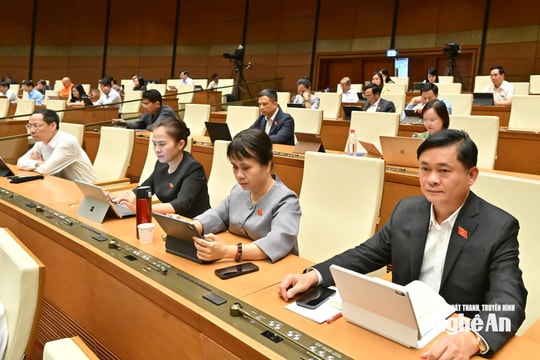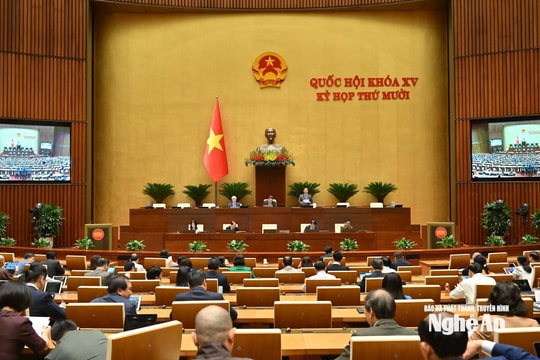The National Assembly passed the Law on Prices (amended)
(Baonghean.vn) - On the afternoon of June 19, the National Assembly passed a Resolution approving the 2021 State budget settlement and the Law on Prices (amended).
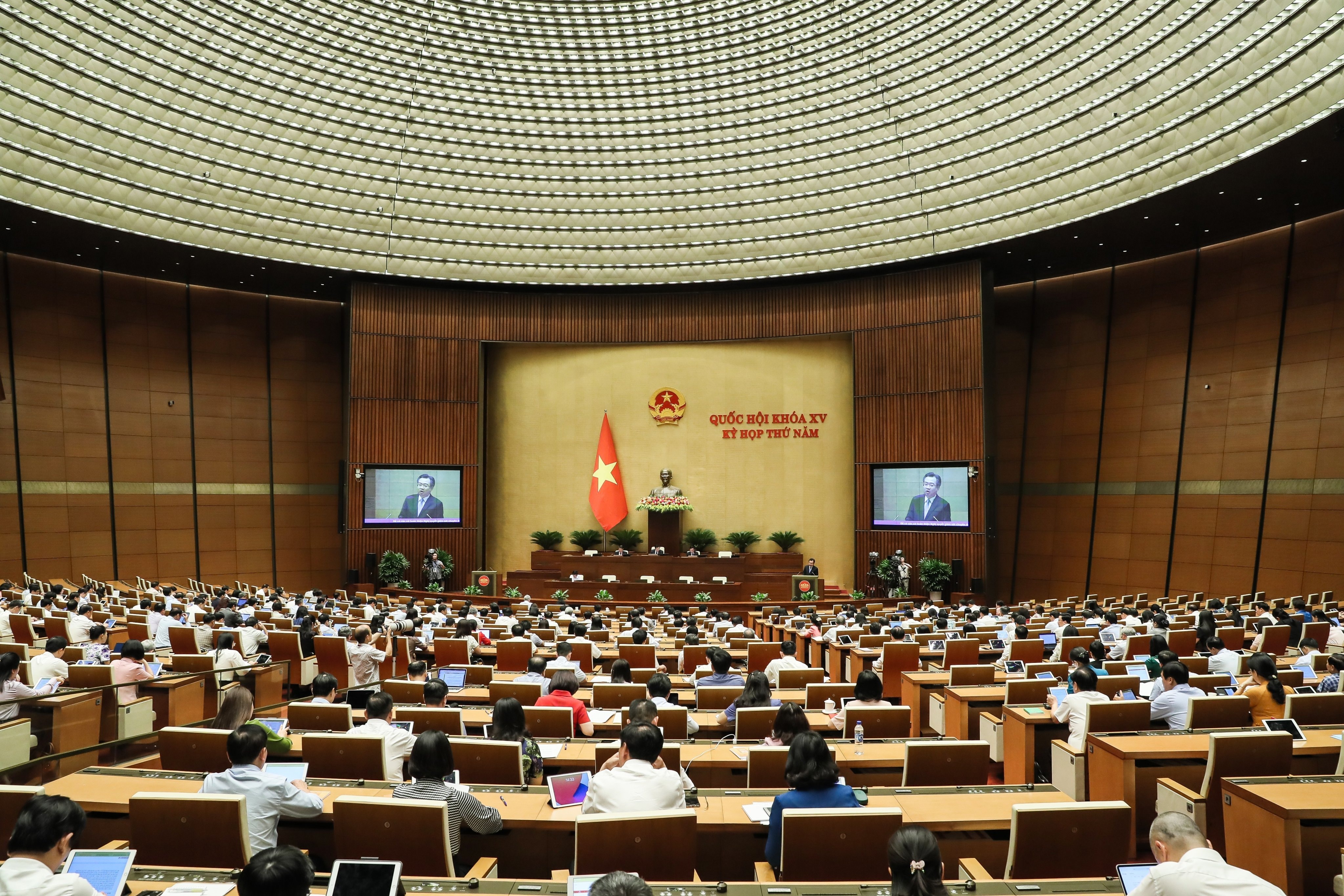 |
Panorama of the working session on the afternoon of June 19 at Dien Hong Hall, National Assembly House. Photo: Quang Vinh |
Previously, at the working session at Dien Hong Hall, the National Assembly voted to pass the Resolution approving the 2021 State budget settlement with 473 National Assembly deputies participating in the vote in favor, accounting for 95.75% of the total number of National Assembly deputies, and voted to pass the Law on Prices (amended) with 92.91% of deputies participating in the vote in favor.
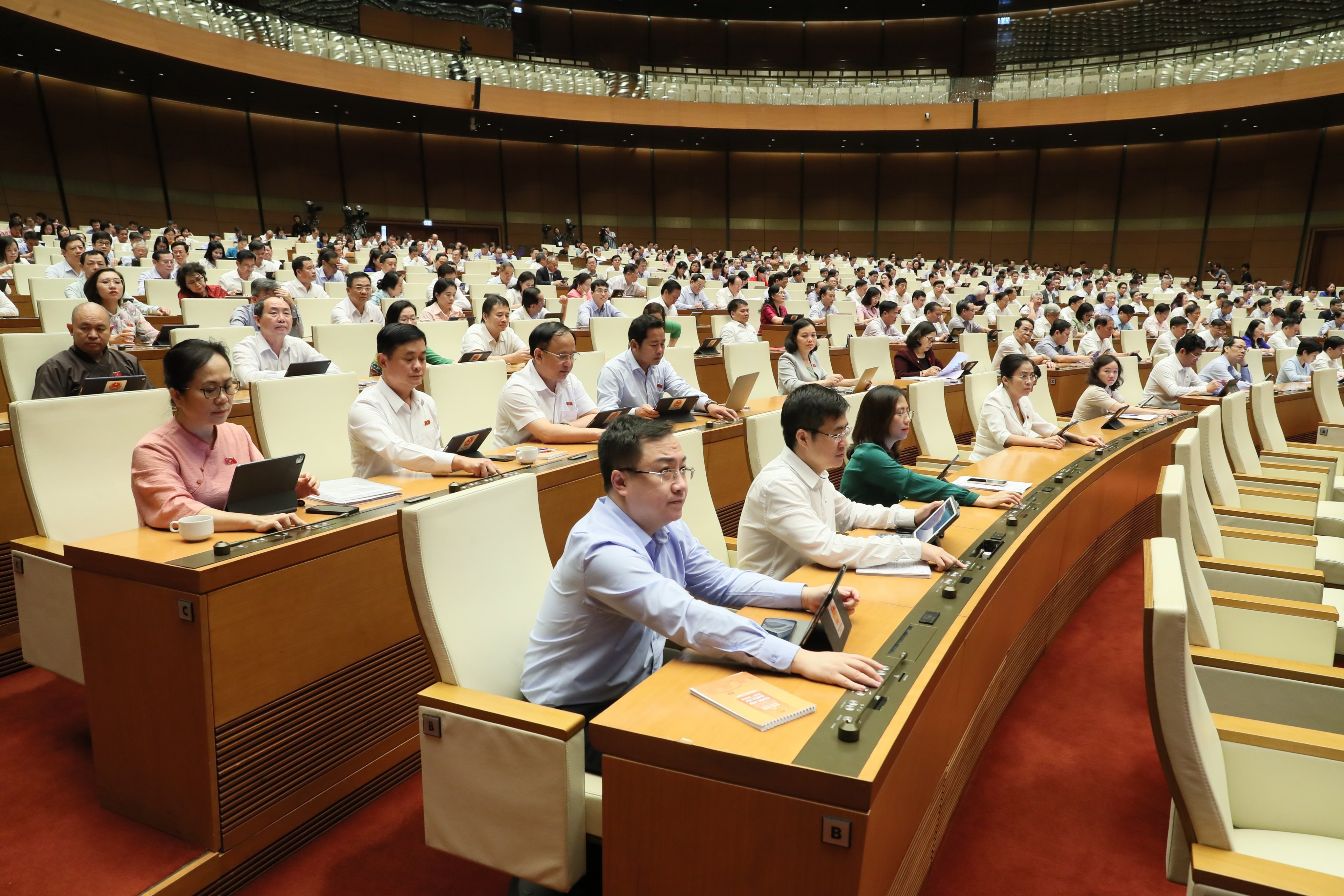 |
National Assembly delegates from Nghe An province vote on the Resolution approving the 2021 state budget settlement. Photo: Quang Vinh |
Next, the National Assembly proceeded to discuss in groups. Discussing in Group 3 with the delegations of National Assembly deputies from Bac Kan and Bac Lieu provinces, the delegation of Nghe An had 2 opinions contributing to many contents in the draft Law on Real Estate Business (amended).
Delegate Thai Thi An Chung - Member of the Provincial Party Committee, Deputy Head of the Delegation of National Assembly Deputies of Nghe An province gave her opinion on the conditions for housing and construction works to be put into business in the future, with conditions and documents on acceptance of the completion of technical infrastructure construction according to the provisions of the law on construction corresponding to the project progress approved by the competent state agency.
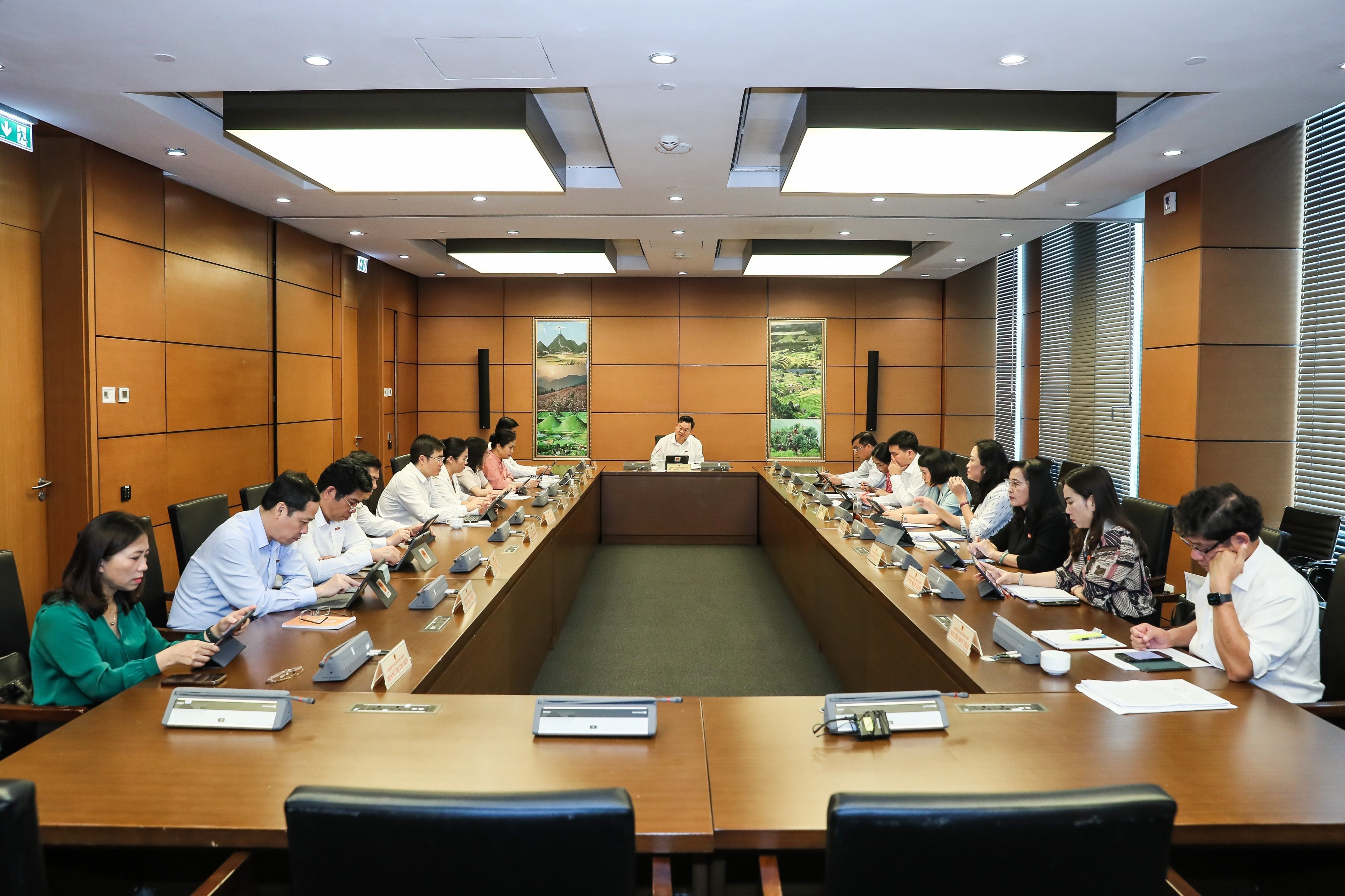 |
Overview of the discussion session at Group 3. Photo: Quang Vinh |
According to the delegate of Nghe An delegation, this regulation is very difficult to implement because in the decisions on approving investment policies, there are only regulations on completing each content of the project, there has never been any regulation on the progress of completing the construction of technical infrastructure. Therefore, it is very difficult to implement this regulation in reality, so it is necessary to consider and regulate more clearly.
The delegate also suggested that it is necessary to clarify what the "legal documents of the project" stipulated in the draft law are?
Regarding the regulations on transferring land use rights with technical infrastructure in real estate projects to individuals to build their own houses, delegate Thai Thi An Chung said: This is a long-standing issue with many opinions. Through monitoring in localities, there is a situation where real estate projects are often left empty when dividing the land into plots for sale and then transferring them to individuals.
Therefore, delegates believe that it would be more effective to assign the district-level People's Committee to invest in infrastructure, then conduct land auctions than to assign construction and infrastructure enterprises to divide plots and sell them to people.
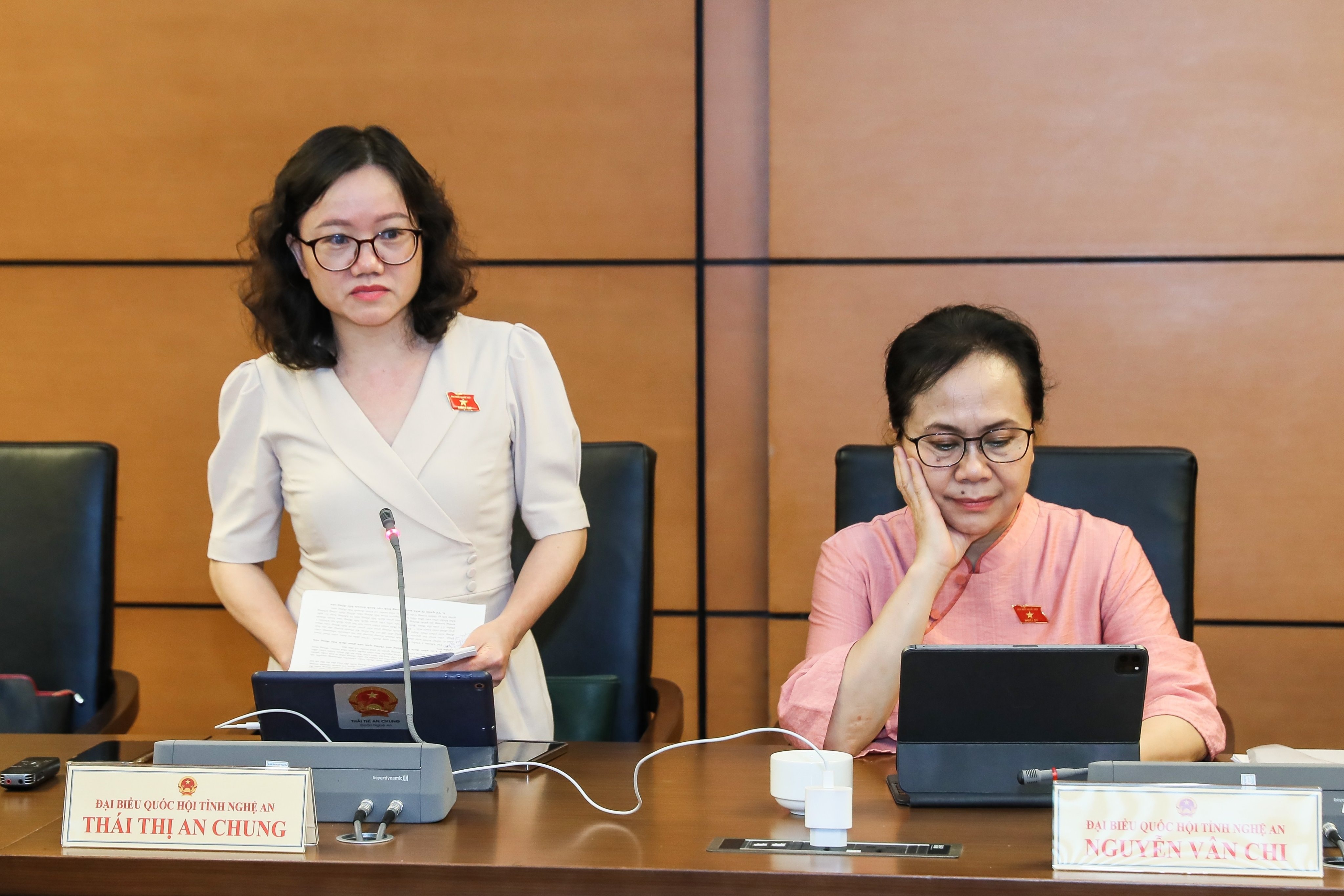 |
Delegate Thai Thi An Chung speaks during the discussion. Photo: Quang Vinh |
Regarding the conditions for land with technical infrastructure in real estate projects transferring land use rights to individuals to build their own houses, delegates agreed with the regulation that the land area is not located in the areas of wards, districts, and cities belonging to special-class urban areas, type I urban areas, type II urban areas, and type III urban areas; but at the same time, they proposed to study and supplement the above restriction for communes in special-class or type I urban areas, because if individuals were allowed to build their own houses, it would not ensure the architectural and planning aspects.
The delegate also proposed that the Law on Real Estate Business (amended) should also add regulations in cases where investors have transferred to individuals to build houses, but the progress is slow, who will be punished, the investor or the individual building the house?
Regarding payment methods in real estate transactions, delegate Thai Thi An Chung proposed clearly stating that cash should not be used, but payment should be made through banks.
Discussing the above draft law, Mr. Hoang Minh Hieu - Standing Member of the National Assembly's Law Committee, delegate of Nghe An delegation, said that it is necessary to carefully consider the scope of regulation of the Law on Real Estate Business (amended) related to land use rights.
Because according to the Civil Code, land use rights are a type of property rights, but when included in the Law on Real Estate Business, property rights are considered a type of real estate business; this is not suitable in theory and needs to be reviewed to clarify its nature. "Perhaps the concept of "land use rights" should be clarified in the Land Law," said delegate Hoang Minh Hieu.
Regarding the conditions when transferring all or part of a real estate project, one of the important conditions is that the investor has completed financial obligations regarding the project's land, including land use fees, land rent; taxes, fees, and charges related to land (if any) of the project.
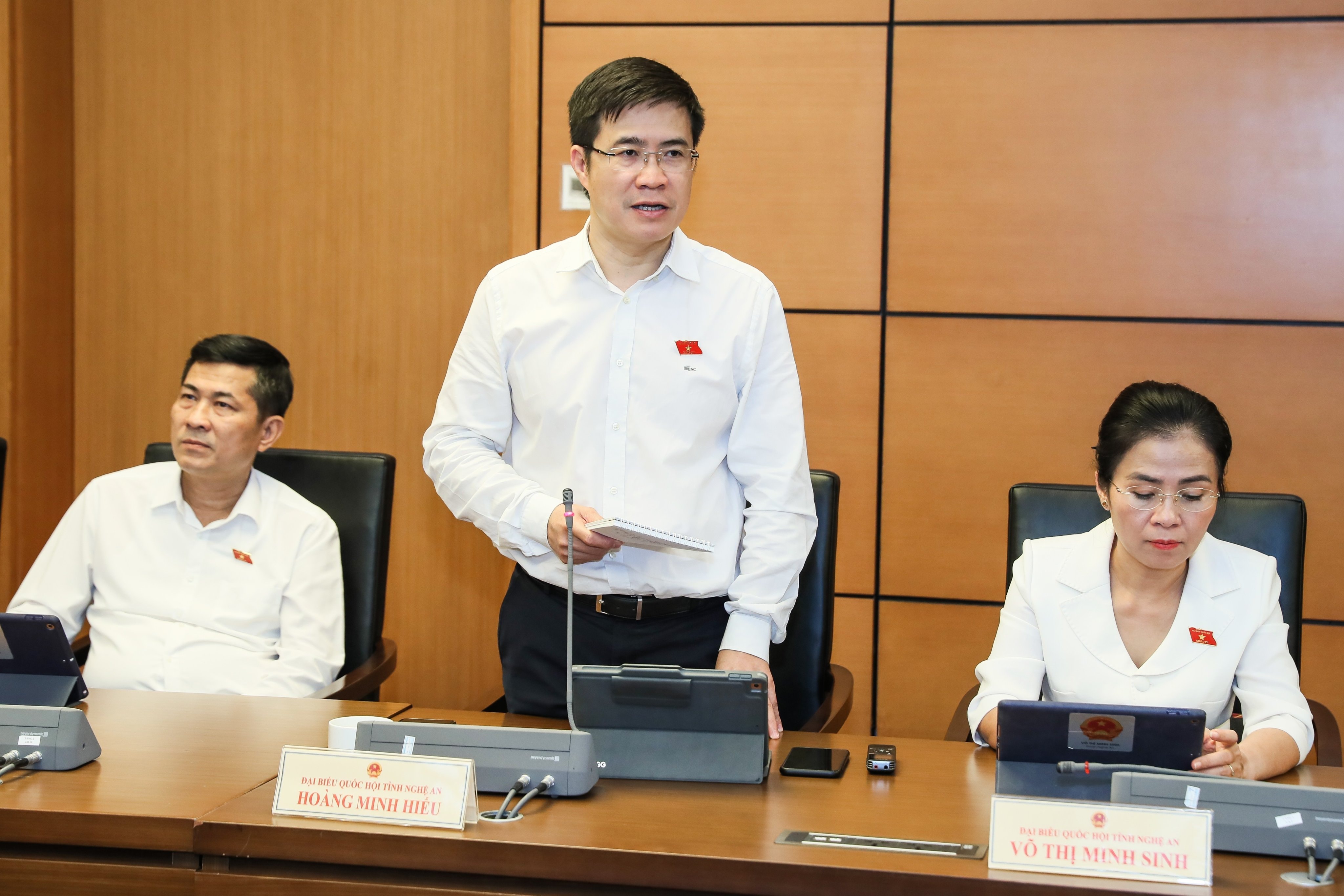 |
Delegate Hoang Minh Hieu, Nghe An delegation, spoke at the discussion. Photo: Quang Vinh |
Delegate Hoang Minh Hieu agreed with the opinion in the inspection report of the National Assembly's Economic Committee that project transfer is still allowed, but it needs to be accompanied by strict conditions for the organization receiving the real estate project, including specific regulations on deposits and commitments to fulfill the project's financial obligations.
Some experts are concerned that allowing the transfer of projects easily could lead to the transfer of many investors, increasing real estate prices. However, according to delegate Hoang Minh Hieu, the reality is not exactly as the above assessment because the price is decided based on market demand.
Regarding the regulations, investors selling, leasing, buying houses, future construction works and transferring land use rights with technical infrastructure in real estate projects for people to build their own houses must conduct transactions through real estate trading floors according to the provisions of this Law.
Delegate Hoang Minh Hieu commented: The purpose of the above regulation is to ensure the rights of people when buying real estate with full information. However, in the delegate's opinion, it should not be mandatory as above but it is possible to regulate transactions through real estate floors or notarization so that people have many options and have the right to access information; but if only regulating transactions of the above types of projects, especially for projects formed in the future only through the floor, it also raises the issue of the capacity of the trading floors, and also transparency; because in the past, it has been shown that there are floors that are the "backyards" of real estate companies, so the rights of people to access information are not guaranteed.

